20 Ecommerce Customer Service Macros
- Peak Support

Introduction
During my time in ecommerce customer service, I answered the question ‘When is my order shipping?’ countless times each day.
That’s not uncommon.
Working in ecommerce support often means dealing with a high volume of repetitive inquiries day in and day out—from shipment delays to return requests and order changes.
When you’re just starting to build out your ecommerce support operations, you might initially respond to each customer writing unique responses. However, as the business grows and support volume increases, it quickly becomes clear that using templated responses for frequently asked questions can speed up the process and improve your team’s productivity.
That’s where ecommerce customer service macros, also known as scripts, come into play.
What are ecommerce customer service scripts?
Ecommerce customer service scripts are pre-written messages designed to address the most common types of customer queries on a wide range of topics, including:
- Pre-order and product questions about product features, availability, sizing, or color options.
- Order management requests to edit ordered items, update shipping addresses, or cancel orders.
- Delivery inquiries regarding shipping status, tracking information, or delivery delays. These inquiries often make up the highest volume of support tickets, especially during peak seasons when shipping services are overloaded.
- Post-delivery questions about returns, exchanges, or issues with damaged or incorrect items received.
- And other inquiries related to referral and affiliate programs, collaboration and wholesale opportunities, and more.
With macros you can reduce response times and handle frequently asked questions more efficiently—while enhancing the customer experience by providing quicker, more consistent responses.
20 customer service macros for ecommerce teams
Below, you’ll find templates for the 20 most common ecommerce support questions to help make responding to frequent customer questions more efficient.
Each example includes two macros—a more professional or formal voice, and another that’s a more casual voice—so you can pick the one that best matches your brand’s style. This way, your communication with customers stays consistent and on-brand.
Feel free to steal and tweak these templates to fit your brand’s specific needs!
I. Pre-order questions
The first category of common ecommerce questions is related to pre-order issues, including product, stock, and shipping details.
1. International shipping
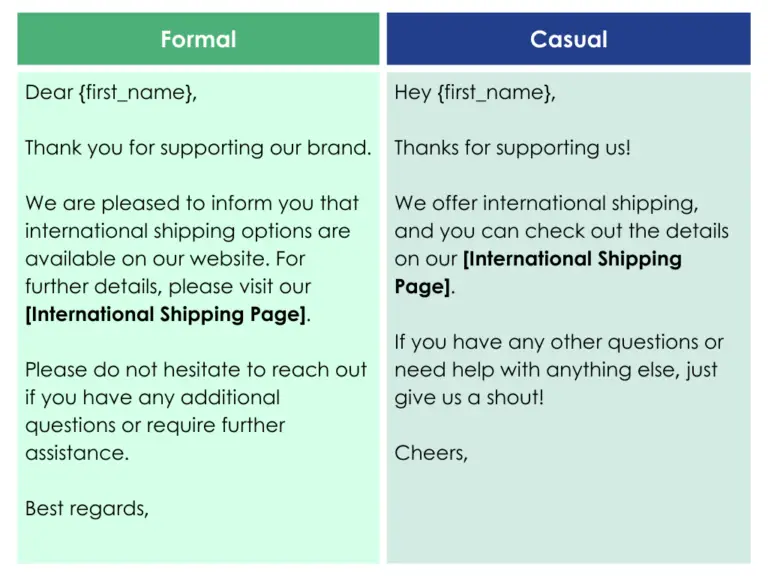
2. Discount options
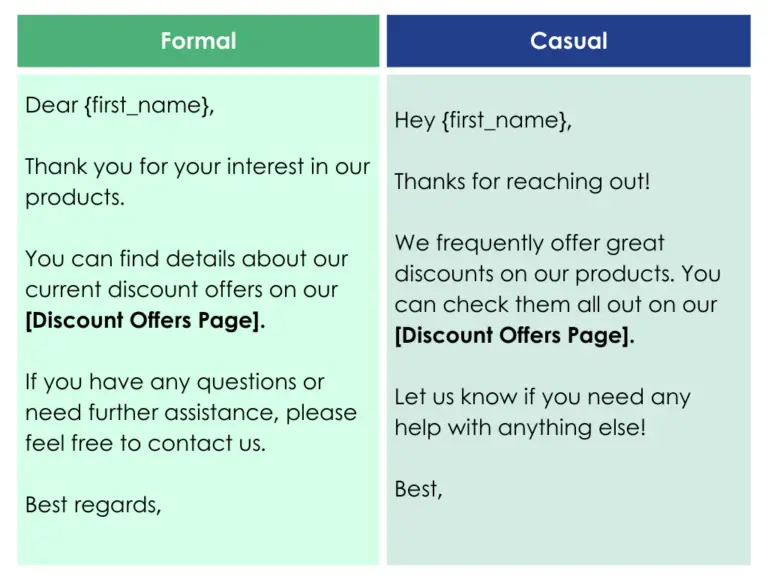
3. Gift cards
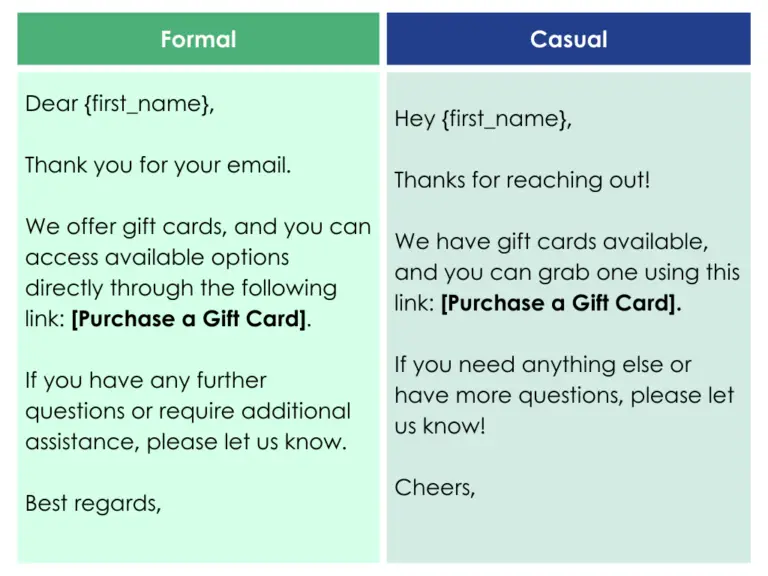
4. Out of stock: Limited edition
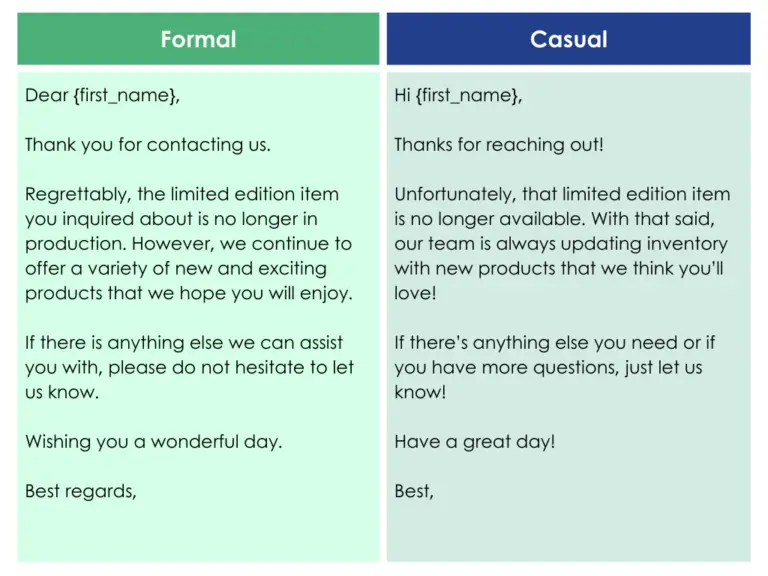
5. Out of stock: Regular collection
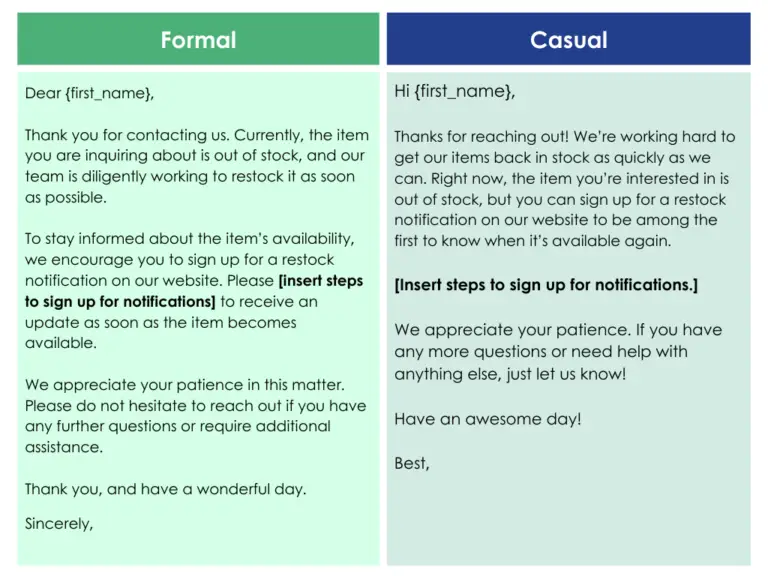
II. Order change requests
Once an order is placed, customers tend to reach out asking to modify order details, making up the next category of common support issues in ecommerce.
6. Order change: Address before order shipped
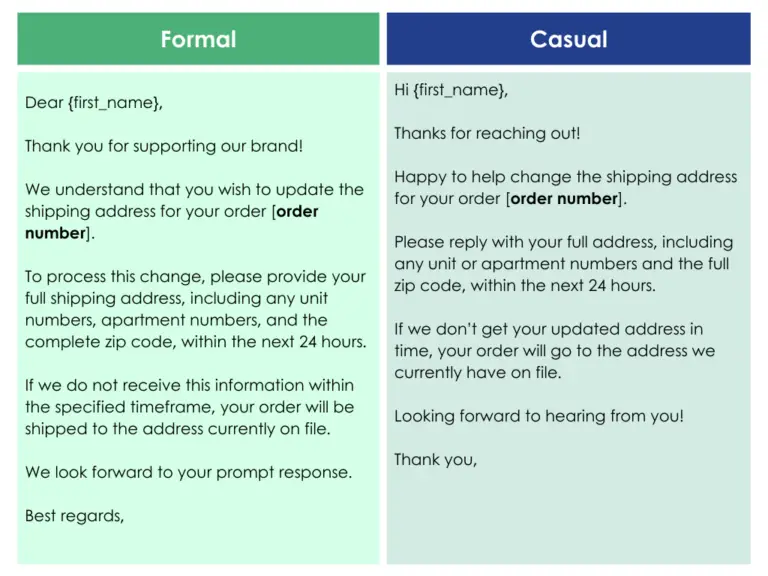
7. Order change: Address after order shipped
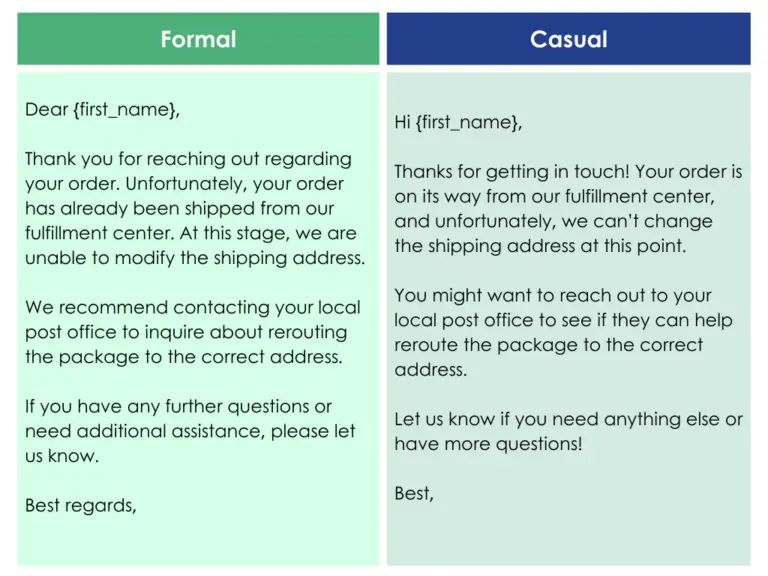
8. Order change: Items
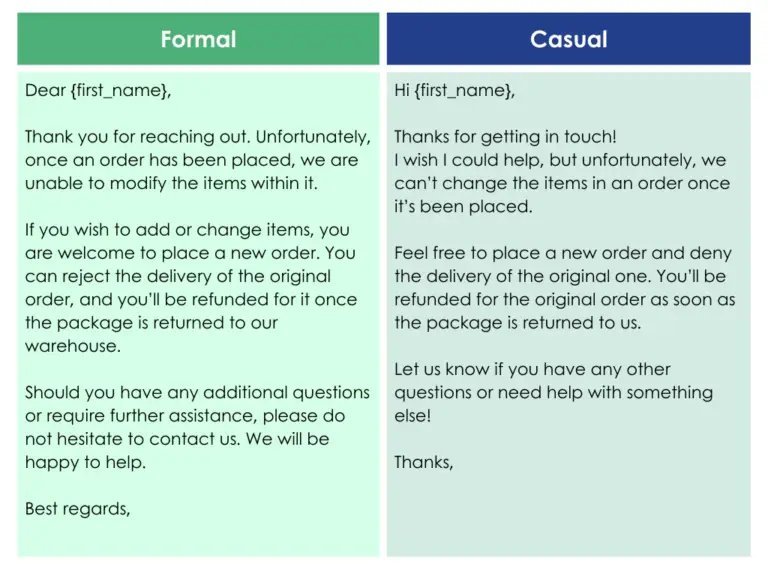
9. Order change: Cancellation
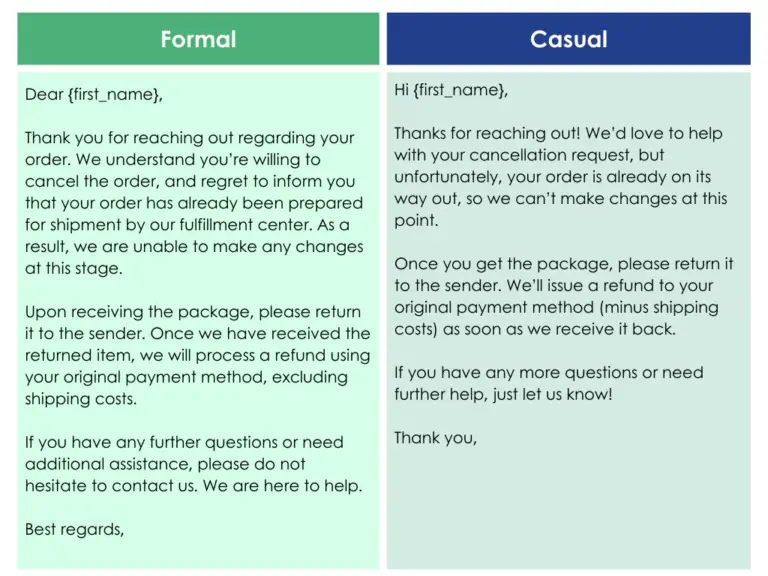
III. Delivery inquiries
The next category is related to delivery issues, which often make up the largest share of support requests in ecommerce, especially during the busy holiday season when delivery delays are common.
10. Tracking info: Order shipped
11. Tracking info: No updates
12. Tracking info: Delay in transit
13. Tracking info: Frustrated about the delay
IV. Post-delivery inquiries
Once products are delivered, customer communication doesn’t stop. Depending on your ecommerce specialization, you may see a higher or lower number of these, but it’s difficult to completely avoid tickets related to returns, exchanges, and product issues.
14. Order issue: Damaged
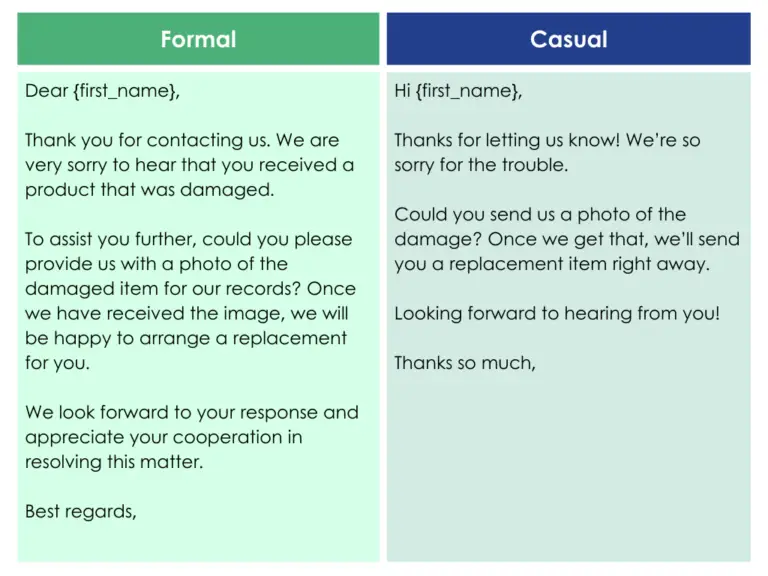
15. Order issue: Damaged (with photo)
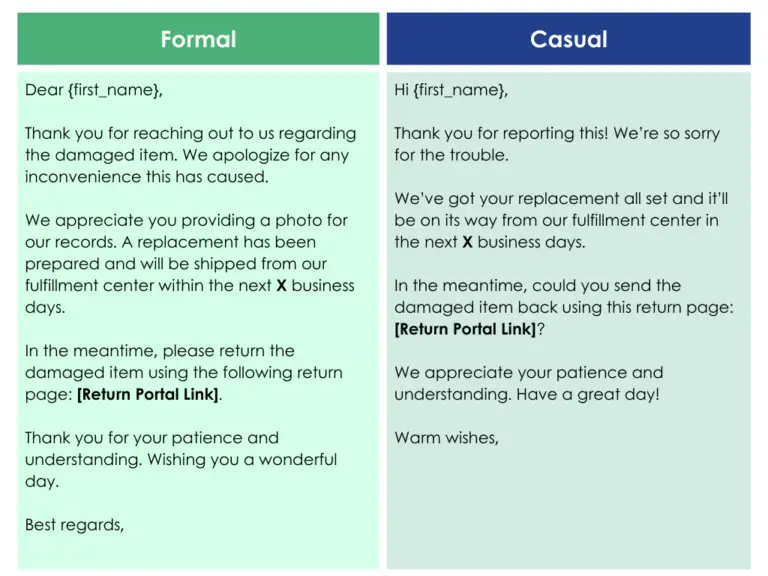
16. Order issue: Wrong item
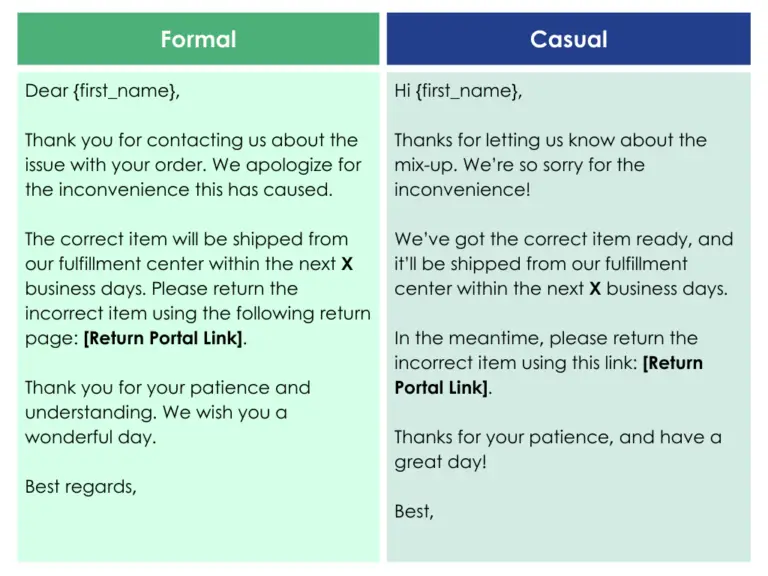
17. Order issue: Missing item
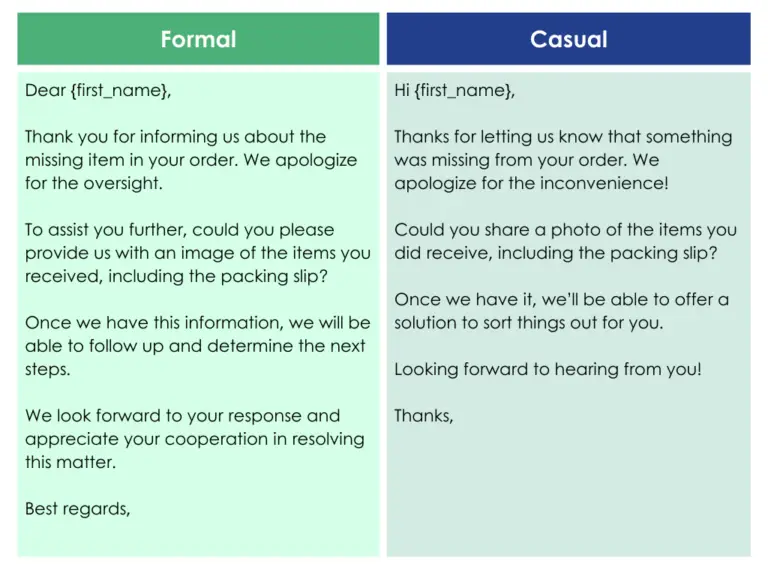
18. Replacement created
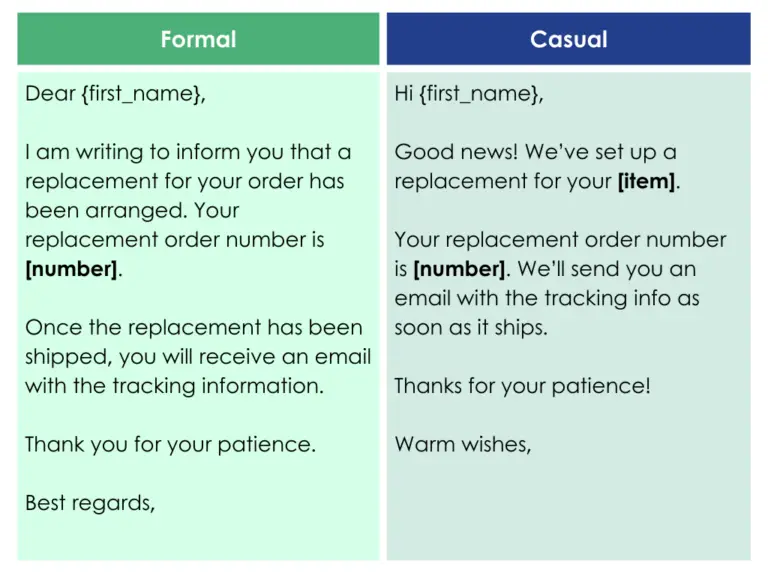
19. Return: Instructions
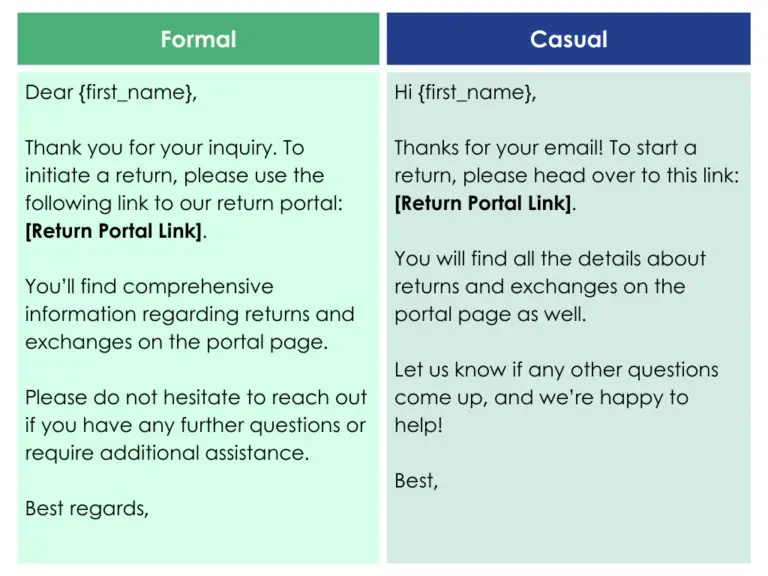
20. Return: Request denied
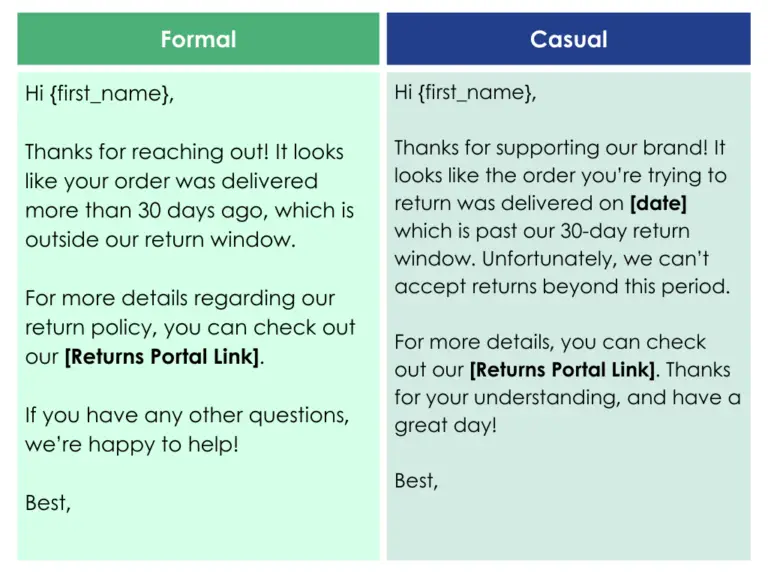
Ecommerce support efficiency
Armed with these scripts, your support team can handle the most common customer inquiries efficiently, spending less time and fewer resources on each ticket. This allows agents to focus on more complex issues, personalization, documentation, and process improvements.
A word of caution: as you implement macros in your support operations, it’s crucial to ensure that agents thoroughly read each customer ticket and verify that the macro response accurately addresses the issue. If necessary, they should adjust the macro text to make sure it’s genuine and helpful for the specific situation at hand.
If you notice agents blindly sending macros without considering the context, it might be time to consider implementing a chatbot to automate common queries instead of relying on human agents to handle those repetitive requests.
We’ve worked with a lot of fast-growing ecommerce brands, including helping automate 75% of Embark’s support volume through advanced chatbot optimization. If you could use help launching or scaling your ecommerce brand’s customer support, schedule a call with our experienced team today to learn more.
